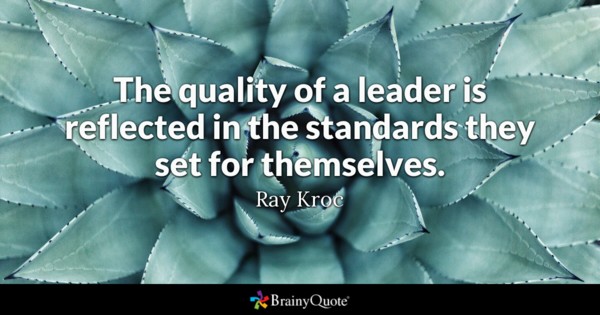| Aspire Consulting, Ltd. Aspire... Higher
|
|
November 2017
Inside This Issue
- So You Want to Grow Up a Leader?
- In their own words
|
|
|
So You Want to Grow Up to be a Leader? 
Before you can lead and influence others to great things, you must first lead yourself.
Self-leadership consists of self-awareness, self-confidence, and self-belief. This article will focus on how to help you gain self-awareness through assessments.
Our decisions, actions, and behaviors are the result of those things that make us unique. Thus, we talk about the what, the why and the how of individual human performance.
First the what: WHAT natural talents do you have that influence your decisions? Research has revealed that there are three distinct styles of decision-making. Each of us can make decisions in all of these three ways, but we tend to prefer one more than the others. This preference becomes a subconscious force, affecting the decisions we make on a daily basis and shaping how we perceive the world around us as well as ourselves. The three decision-making styles are systemic, practical, and empathetic. Systemic thinking and preference is one of formal concepts or ideas on how things should be. Practical thinking results in common sense thinking and tactical planning. Empathetic thinking and preference is one of valuing objects and people because they are irreplaceable or unique. We all have different balances of these three; that's what makes our decisions and actions different. Understanding your individual strengths and non-strengths will enable you to affect change in your life and achieve greater personal success. By understanding other's strengths, we can support the use of their natural talents on the job and at home, and not create weaknesses by asking them to operate in areas that are not within their strengths.
Second, the why: WHY are we motivated to use our talents? Knowing how to motivate yourself and others is supported by understanding what drives individuals toward success. This information is invaluable in helping people align their environment with what creates passion for them. It allows us to create an environment in which the rewards and incentives match the people. Everyone has their own unique mix of personal drivers and motivators. Understanding what really drives a person to use their natural talents is as important as understanding what is demotivating for each person. According to the work of Dr. Eduard Spranger and Dr. Gordon Alport, there are seven drivers or motivators that people may have:
Aesthetic: A drive for harmony, balance and form.
Altruistic: A drive for helping others to achieve.
Economic: A drive for economic or practical returns.
Individualistic: A drive to stand out, be independent.
Political: A drive for control, stability and influence.
Regulatory: A drive for tradition, steadiness, and certainty.
Theoretical: A drive for learning, understanding, and knowledge.
Third, the how. HOW do we behave? Understanding HOW we behave can make a large difference in interactions. Since each individual has their own unique preferences and habits for how they like to behave, this understanding is helpful when working with teams, your family, as a leader, or in a situation that requires conflict resolution.
The DISC is an example of a behavioral profile theory by William Marston. The DISC profile reveals dominant behavioral patterns including: "D"-Decisive: Obtaining results and problem-solving Those scoring high in this tend to solve new problems quickly; get to the bottom line; use an active, assertive approach to obtaining results. "I"-Interactive: Being with people and expressing emotions Those scoring high in this meet new people in an outgoing, gregarious, assertive manner. They tend to be emotional, reactive, talkative. "S"-Stabilizing: Keeping a steady pace - Controlled and consistent as opposed to unpredictable and flexible. Those scoring high in this prefer a controlled, deliberate, predictable environment. They value security of the situation and disciplined behavior. "C"-Cautious: Adhering to standards, procedures and rules Those scoring high in this adhere to established rules set by authority. They do things the "right way," according to the book, and believe "rules are made to be followed."
TO get on the road to your professional growth, start with self-awareness.
|
| In Their Own Words
Everything that irritates us about others can lead us to an understanding of ourselves." - C. G. Jung
"Find out who you are and do it on purpose." - Dolly Parton
"The curious Paradox is when I accept myself for who I am, I can change" - Carl Rodgers
"I think self-awareness is the most important thing to being a champion" - Billie Jean King
|
|
Aspire Consulting
Aspire believes that individuals and organizations have the capacity to discover and use their unlimited potential to create and sustain success. We assist companies in developing their employees to leverage their strengths and in turn drive measureable long term results.
We always start with a no cost consultation.
Call us: 845.803.0438
|
Let us know what you think and want to hear more about!
|
|
|
|
|